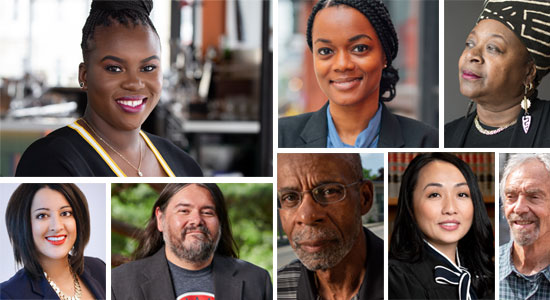
In recent weeks, millions of people across our communities have come together in an historic movement that calls for fundamental change addressing systemic racism. Protests are sweeping the country in direct response to the fact that racism is an inescapable reality for African-Americans and other underrepresented groups.
Civil rights lawyer Curry First suggested we give voice to members’ stories. We thought, great idea! We invited a cross-section of lawyers to tell us what this moment in American racial, social, and legal justice reform means to them.
While we received a great response to this invitation, we know there are more voices to be heard. What does this moment in history mean to you? Post a comment below or email us at wislawmag@wisbar.org.
– Editors
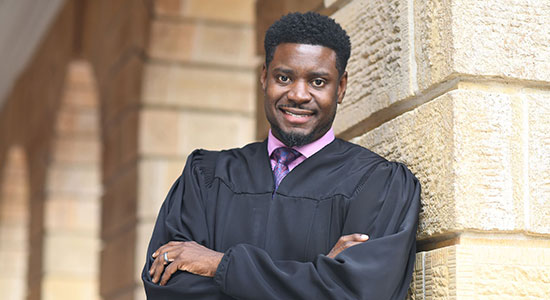
Judge Everett Mitchell | Finishing the Work
“I march to show my commitment to change. I march with others to let our voices be heard.”
“What’s his name? George Floyd! What’s her name? Breonna Taylor! What’s his name? Tony Robinson!”
These are the chants that echoed from my bullhorn as we marched down State Street in Madison to the Capitol steps. The march included faith leaders from various religious backgrounds, diverse cultural allies, community activists, educational leaders, community groups, and law enforcement allies invested in creating systemic change.
I anticipated possibly close to 500 people gathering with us to march. But, as we started to assemble at the intersection of Park Street and University Avenue, hundreds and eventually thousands of community members statewide came together to demonstrate their rage and sadness after the killing of George Floyd. After watching the now former police officer take the life of George Floyd by holding his knee to Floyd’s neck for 8 minutes and 46 seconds, life will never be the same.
After the death of Tony Robinson here in Madison and fighting for reform in 2015, I chose the judiciary as a place to put my activism because of the tremendous responsibility of judges in ensuring fairness and justice. But, my black robe does not insulate me from racist attitudes and beliefs. Even in my courthouse, where my picture is posted, I have been asked to show my I.D. just to be able to move in the building. So, I march.
I march to never forget the hundreds that have been lost to police violence. I march to show my commitment to change. I march with others to let our voices be heard. I march to remind those who have forgotten or don’t care to remember that #BlackLivesMatter.
Everett D. Mitchell, U.W. 2010, is a Dane County Circuit Court judge. He is committed to dismantling the child welfare to juvenile delinquency to adult prison pipeline, as documented in a PBS Wisconsin series, “Not Enough Apologies: Trauma Stories.” Judge Mitchell also is a senior pastor of Christ the Rock Baptist Church in Madison.
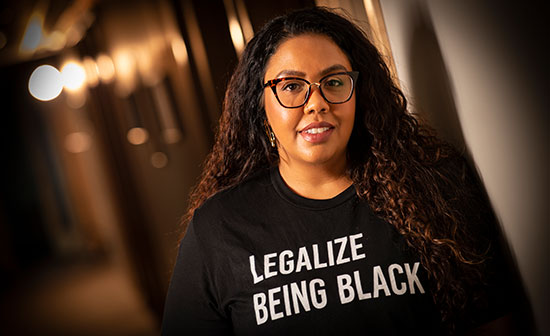
Ashley Morse | Forever Changed
“We were all in the room when George Floyd was executed, and we will be forever changed by it.”
There is a scene in the movie Just Mercy where Bryan Stevenson is witnessing his client’s execution. The room is small, and swelling with indifference. Michael B. Jordan plays Stevenson in the film; the lone witness to the humanity of this condemned man. You see the waves of emotions breaking across Stevenson’s face as he watches this man die. You see tears and anguish welling in his eyes. With a strength I do not know, he holds it together long enough to make it back to his car where he lets out a tremendous exhale of pain. The tears seem to flow not just from his eyes, but from his bones. At this moment, you know this man is forever changed.
As the viewer you hold out hope till the very end that someone will intervene. They don’t. You hope that maybe the white guard who was seemingly growing a conscience will refuse to continue to participate. He does not. They kill the black man, and the viewer is reminded that our justice system has worked as designed.
What we’ve seen these past weeks is the tremendous exhale of pain from a community that has borne witness to these state-sanctioned killings far too many times. We were all in the room when George Floyd was executed, and we will be forever changed by it. For some the change is new; for others, terribly familiar. I hope we never again accept indifference to humanity, and we never again accept this system of justice.
Ashley Morse, U.W. 2009, has worked as a staff attorney with the Wisconsin State Public Defender, Janesville, since 2010.
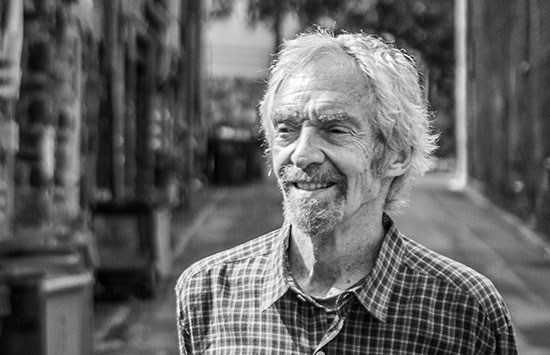
Curry First | The Summer of 2020
“I see, following the killing of George Floyd, the biggest collective demonstration of civil unrest in my generation’s history.”
As a long-time civil rights lawyer and activist, I understand this moment to have the possibility of being transformative in our nation for both addressing and finally making sustaining changes to our 400 years of systemic racism.
I see, following the killing of George Floyd, the biggest collective demonstration of civil unrest in my generation’s history. I see a widespread movement of multiethnic and multigenerational protests that are serious, informed, and appear to be committed to a long struggle. Yet, this moment appears different, a movement with continuing momentum. Almost overnight multinational corporations in this country rolled out public statements endorsing the Black Lives Matter movement, company-wide paid worker holiday for Juneteenth Day, and local governments rushing to dramatically reform police policies.
But moments have been in our communities before and then largely dissipated. So vigilance and sustained work and pushing will, if continued, answer the question, “Will this national protest movement in the summer of 2020 continue and make a real difference?”
In some ways lawyers are uniquely situated to address injustice. After all, our call from the day we are sworn in as new attorneys by the Wisconsin Supreme Court is fundamentally about providing justice to our clients and our communities.
I retired to Asheville, N.C., 10 years ago, but I stay connected to my Wisconsin roots. Because I wanted to know how my friends and colleagues back in Wisconsin view this moment in history, I asked the State Bar to provide a forum in this issue of Wisconsin Lawyer to hear from diverse voices. I am anxious to read what we have to say.
Are we willing to be uncomfortable?
During the 39 years Curry First practiced in Milwaukee, he was involved in social justice work serving on the boards of Sojourner Truth, Benedict Center, Wisconsin and Milwaukee ACLU, and Milwaukee Jobs with Peace. Now in Asheville, N.C., he is an active member of Elders Fierce for Racial Justice, a retired group diverse in gender, race, and profession.
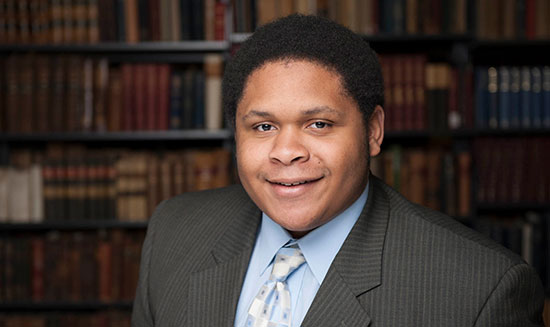
Devonte Windham | Nothing Changes, If Nothing Changes
“The circumstances and months following Michael Brown’s death deeply impacted the man I am today.”
As a young Black man in America, the call for social change hits near my heart. I am a public defender, a youth football coach, and an uncle to 11 wonderful nieces and nephews. Police brutality and misconduct impacts both my professional and personal life.
I attended the University of Missouri School of Law from 2014 to 2017. Michael Brown was shot and killed two weeks before the start of my first year. The circumstances and months following Michael Brown’s death deeply impacted the man I am today. The Black Lives Matter movement gained national attention. I saw the power of protest first hand. I saw the hate and animosity toward the protest. Although awareness had increased and some policies were changed, activism seemed to dwindle as the years went by. This time around, the movement feels different.
The movement is a glimmer of light in an otherwise dark cave. Our society finally seems to accept that drastic change is necessary. We must give special attention to the issues of our present if we are going to secure our future in this country. It is encouraging to see the continued activism, especially from my coworkers. I believe policy change and resource shifting will make safer communities for my clients, my players, and my nieces and nephews.
It is important that we, as members of the legal community, do not become complacent. We are in a unique position to impact lasting change through policy and reform.
Nothing changes, if nothing changes.
Devonte Windham, Missouri School of Law 2017, is an assistant state public defender in the Madison Trial Office. He is from the Chicagoland area.
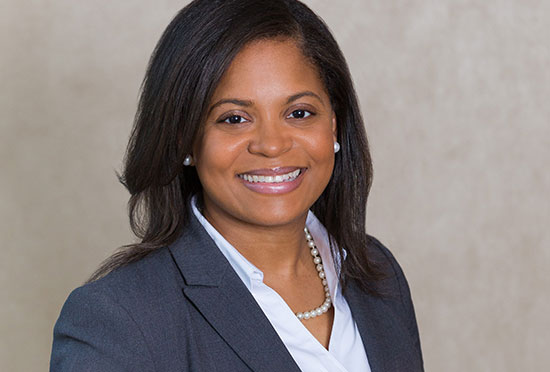
Jennifer R. Imediegwu | Through a Parent’s Lens
“If we, from all ethnic backgrounds, seek to raise children who are enlightened and empathetic, we can build a more inclusive tomorrow.”
The deaths of unarmed Black men in America are both despicable and disheartening. Despite being an African-American woman, I cannot recall a negative encounter with law enforcement or being overtly mistreated because of my race.
The truth of the matter is, if one is polished, articulate and educated, doors will open, and generally better treatment will follow. Some may call it tokenism or assimilationism. I recognize it as exceptionalism, but we cannot be an America where an exceptional few excel. We must be an America where all have a fair chance and are treated equally – despite race, socioeconomic status, dialect, hairstyle, or gender.
As a lawyer, I recognize change is very much needed today. The discrimination must be rectified — not in a perfunctory manner but sustained change. When I look at the need for racial, social, and legal justice reform, I also see it through a parent’s lens.
As a mother of three sons, I am committed to delivering a better America to them. My husband and I seek to raise them with awareness, and they will not be crippled by racism, but equipped to excel despite it. It is important to strike the right balance as to not bog down their innocent childhoods. We must let kids be kids, but continuously shape them into the best adults they can become.
And if we, from all ethnic backgrounds, seek to raise children who are enlightened and empathetic, we can build a more inclusive tomorrow that is built on the strength of our diversity and sustain the progress we seek to achieve today.
Jennifer R. Imediegwu, Tennessee College of Law 2013, is an associate at Moertl, Wilkins & Campbell S.C., Milwaukee, focusing on elder law, estate planning, and estate administration. She is a member of the Milwaukee Chapter of Jack and Jill of America Inc. and Greater Milwaukee Foundation’s Herbert J. Mueller Society. She is also a published author, Letters to Her: Becoming a Woman of Purity, Purpose, and Proverbs 31 Virtue.
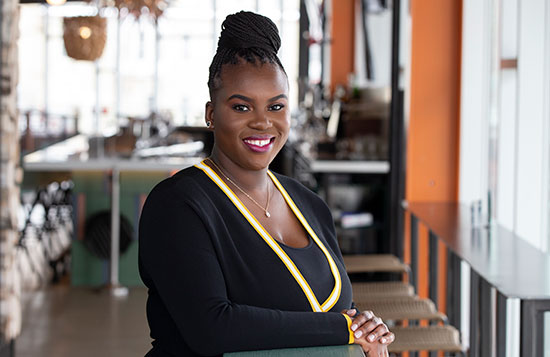
Isioma Nwabuzor | This is Real Reform
“As a Black, immigrant woman, my livelihood and well-being are inextricably contingent upon racial, social, and legal justice reform.”
As a lawyer, I see what the world looks like when comprehensive reform in our systems does what it should for all. As a member of several marginalized groups, I also witness what the world looks like when these systems don’t do enough.
Reform means a world where socially disadvantaged groups don’t experience a higher rate of illness, haphazard care, and death within the healthcare setting. It means that, as a Black woman, if and when I choose to have a child, I don’t have an incessant fear of maternal mortality because of the care disparities that plague women of color.
Reform means elimination of the school-to-prison pipeline that grooms youth of color for the justice system before it grooms them for a just society.
Reform means being able to build familial and communal wealth through continued home ownership – and not having to leave the neighborhood that reared me because of food deserts or being able to find the home I want, where I want, without being subjected to discrimination in doing so.
Reform means not working twice as hard, only to receive half as much. It means equity in retention, compensation, promotion, and representation.
Reform means a justice system that dismantles the social engineering, sustained for years by the oppression of those like me. It means not having to live in the shadows; it means a legal system that proffers protection and impartiality regardless of race or socioeconomic status; it means that I, and all parts of me, matter.
As a Black, immigrant woman, my livelihood and well-being are inextricably contingent upon racial, social, and legal justice reform.
Isioma Nwabuzor, Marquette 2015, is vice president & associate general counsel at Baird, an international, employee-owned financial services firm based in Milwaukee. She is founder of The DREAMer Next Door, Inc., a nonprofit organization designed to mobilize millennials in solving pressing sociopolitical issues, particularly immigration reform.
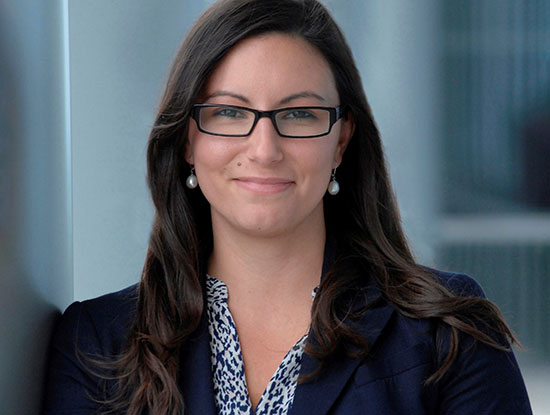
Leslie A. Melo | United in Pain
“I never felt like I personally could do much to effect that much change. Then George Floyd was murdered.”
To me, the events of the last few weeks represent unity as much as equality. I have long been a vocal advocate for equality for all. That is an easy position to take, an easy side to stand on, especially as a minority.
I am a female attorney with Hispanic roots, and I am married to a woman who is an immigrant and whose first language is not English. Of course, I support equal rights – and equal treatment – for women, for people of color, for the LGBTQ community, and for immigrants.
But believing in equality and doing something about it are two different things. I have been involved in social justice organizations and done pro bono work, but it never felt like enough. I never felt like I personally could do much to effect that much change. Then George Floyd was murdered. Then all of a sudden, it felt like all oppressed, battered, and beaten voices rose up at once to fight that injustice, to fight all injustices that African-Americans in this country face every day, and to fight any system that treats people of color, poor people, disabled people, gay people, or any group of people, as not human.
We are united in our pain, in our protest, and in our resolve. That is the most promising. One of my favorite chants during a protest – “The people, united, will never be defeated.”
Leslie A. Melo is an attorney with Redgrave LLP, Chicago, and focuses her practice on matters concerning eDiscovery and information law. Her work includes drafting and negotiating ESI protocols, reviewing forensic analysis, overseeing large document review projects, and assisting with discovery on complex litigation matters.
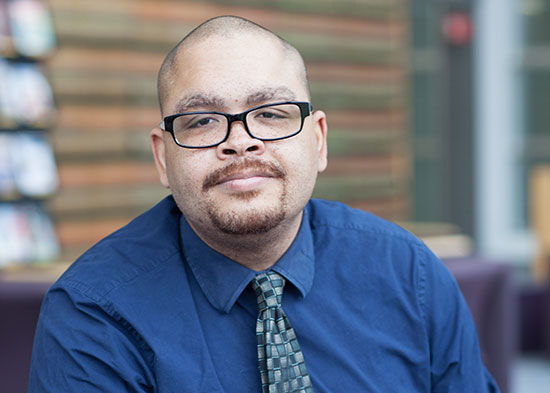
Steve Wright | Enough Talk
“But talk alone won’t catalyze the widespread institutional change necessary to prevent the humiliation, abuse, and murder of Black men.”
I’m skeptical.
Protests are great. Really, truly, they are. Petitions? They’re awesome too, I guess. But, in the end, protests and petitions are just talk. And, yes, yes, some protests and petitions have cast a bright and cleansing light upon dark instances of racial injustice. But talk alone won’t catalyze the widespread institutional change necessary to prevent the humiliation, abuse, and murder of Black men.
We need action.
Our leaders must understand that we are unimpressed by their public affirmations of their personal commitment to diversity and inclusion. Their promises to listen and learn aren’t nearly enough. Instead, our leaders must understand that we require them to make uncomfortable and unpopular decisions, standing shoulder to shoulder with communities of color, leveraging their privilege and influence to protect and empower our beleaguered communities.
Our leaders aren’t the only ones who must act. The protestors in the streets, the ones who shout in officers’ faces or who break shop windows or who shake their fists on Twitter, these individuals must channel their anger, frustration, and energies toward lasting political change.
In pre-pandemic Wisconsin, turnout in nonfederal elections was often abysmal. In these elections, Wisconsinites selected the people who shape our criminal justice system. Mayors. Prosecutors. Trial and appellate judges. These officials possess the power to effectuate the change that protestors demand, but these officeholders won’t meaningfully respond until the smolder on the streets intensifies into a balefire at the ballot box.
So, yes, I’m skeptical, quite possibly cynical, but I’m dissatisfied with talk, and I demand action.
Steve Wright teaches criminal law at the U.W. Law School, where he co-directs the Wisconsin Innocence Project. He is a former trial attorney in the Civil Rights Division of the U.S. Department of Justice. There, he litigated cases to enforce the Voting Rights Act of 1965. His debut novel, the Coyotes of Carthage, is now available.
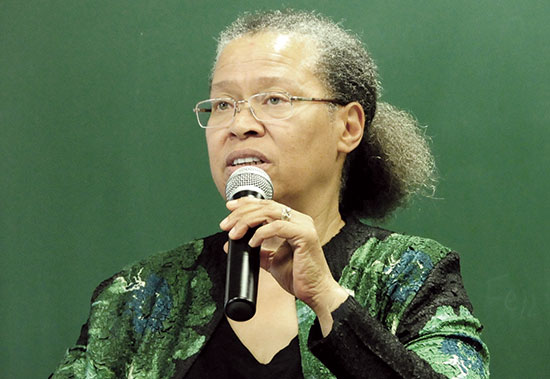
Anne Thomas Sulton | A Widening Economic Divide
“The current unrest is a realization the sun has not yet set the evening before the darkest night before the next day’s dawn, and the worst is yet to come.”
I grew up black and poor in Racine. I studied and/or taught on three continents. I travelled around the world at least five times.
I choose to work as a civil rights attorney because I know the economic divide is expanding, resulting in the chasm of suffering experienced by those who are black and poor deepening.
Blacks continue to rank highest on the misery index. The current unrest is a realization the sun has not yet set the evening before the darkest night before the next day’s dawn, and the worst is yet to come.
I also know lawyers too often are a central part of the problem because they either choose to actively participate in fashioning laws and implementing policies that benefit only the rich and powerful or stand silent in the face of obvious injustice.
From my perspective, lawyers “can collectively work toward racial equity and equal justice for all” when they purposefully and steadfastly marshal their resources to:
- Ensure blacks are able to exercise their constitutional right to vote
- Increase blacks’ access to preventative health care services
- Reduce school suspensions and expulsions of black children
- Reduce blacks’ homelessness by increasing affordable housing
- Ensure blacks are paid a livable wage and their workplaces are safe
- Increase black businesses’ access to banking services and operating capital
Reform crime control agencies by stopping police brutality, stopping prosecutors from overcharging, stopping judges from denying bail/bond based on wealth, and stopping judges from oversentencing.
Anne Thomas Sulton, U.W. 1985, holds a Ph.D. in criminology and criminal justice from the University of Maryland-College Park. She has received the William Robert Ming Advocacy Award from the National NAACP, the most coveted award an American civil rights attorney can receive.
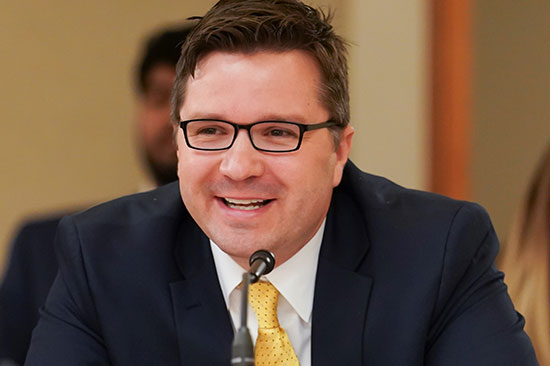
Rep. Evan Goyke | Investing in Our Communities
“We can reduce crime by investing in people and in neighborhoods, rather than on police, militarized equipment, or expanded jails and prisons.”
I don’t think it’s accurate to call this a “moment of racial, social, and legal justice reform,” because we haven’t accomplished meaningful reform yet. Rather, this is a moment of racial, social, and legal justice awareness.
We now need action. No more studies or committees or commissions. This moment calls for elected leaders to reform policing, police funding, and police accountability; to reform how and why we arrest, prosecute, and punish people; and to reform whom we incarcerate, and how we help them rebuild meaningful lives.
In Wisconsin we spend billions of dollars each year on our criminal legal system. Rarely, if ever, do we ask if it’s working. Are we any safer? Is our community better off? Greater criminal system spending does not equal less crime, yet we continue to increase spending year after year.
There are alternatives. In my area of Milwaukee, the Washington Park Neighborhood received a federal grant of $200,000 per year for three years. There was no major saturation of police, no new militarized gear, and no tougher penalties. Instead, the grant was used to bring police, community groups, and — most importantly — neighbors together. This targeted community engagement led to a crime reduction of nearly 30 percent.
These results show that we can reduce crime by investing in people and in neighborhoods, rather than on police, militarized equipment, or expanded jails and prisons. By investing funds into the community, we make our neighborhoods safer, healthier, and more equitable places.
Evan Goyke, Marquette 2009, serves as a state representative for the 18th Assembly District in the city of Milwaukee. He serves on the legislature’s Joint Committee on Finance and has worked extensively in the legislature on criminal justice and prison reform policies. He is a former assistant public defender in Milwaukee.
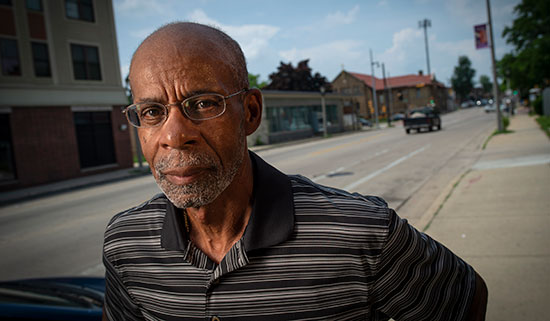
Roy B. Evans | The Genie is Out
“Justice denied is an elusive genie that I hope will never return to the bottle.”
Racial justice and civil rights movements have all along been simply telling America that, “Black Lives Matter, but we can’t breathe with your knee on our necks.”
In the wake of recent police killings of innocent Black people the festering need for fundamental change in American society has come to the surface. Unlike movements in the past, history cannot be ignored this time and has risen to the surface of our collective consciousness.
In other words, the genie will no longer fit in the bottle.
The impetus of the current Black Lives movement is rooted in the confluence of three critical events. First, the current political climate spearheaded by a leader who has stoked the legitimacy of violence in the discussion of race that cannot be ignored. Elections have consequences and our heightened sensitivity to our country’s contradictions are an obvious result therefrom.
Second, the worldwide coronavirus pandemic has stripped us of our individual humanity and forced us to recognize our collective vulnerability as human beings. “We the people” takes on a new meaning and forces us to recognize our common humanity.
Third, with the advent of smartphones and video cameras, “my word versus your word” no longer applies. Now it is, “I can see it with my own eyes, from many angles, and view it many times. “
The new normal has created a world where every event has the potential of going “viral.” It took slaves in Galveston, Texas, on a day we now call Juneteenth Day, to discover that slavery had been officially abolished two years earlier.
Justice denied is an elusive genie that I hope will never return to the bottle.
Roy B. Evans, U.W. 1979, focuses his practice on contracts, municipal law, and probate. He currently chairs the City of Milwaukee Board of Review and is on the board of directors of the Federal Defender Services of Wisconsin. He is the 2019 recipient of the Frank P. Zeidler Public Service Award for his contributions and community advocacy.
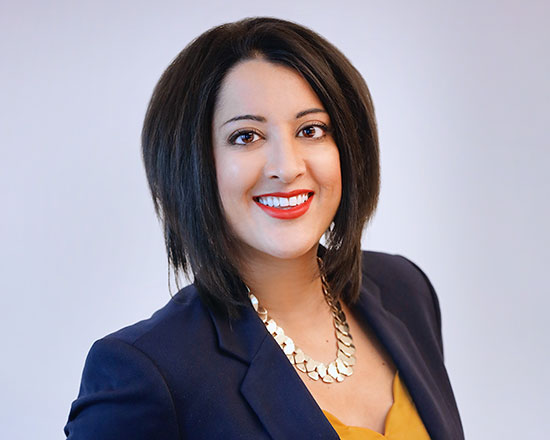
Anu Chudasama | The Power to Transform
“My skin was not the right tone. In the absence of equality, I longed for it.”
I was born to east-Indian parents in Bahrain, an island in the Middle East, where I attended British schools. I had a fortunate upbringing. Even then, inequality was no stranger. I recall some friends would frequent a private beach reserved only for the fair-skinned. My skin was not the right tone. In the absence of equality, I longed for it.
My family immigrated to Toronto, Canada, a stunningly diverse city, but not devoid of prejudice. I went to law school in Madison and lived in Eau Claire before landing in Minneapolis. In my experiences, including living in or visiting nearly 30 countries, I find that we continuously distance ourselves from those who are unlike us. Yet, we share a lot of the same core values and desires. Family. Love. Friendship. Joy. Prosperity. We want to be respected and treated as equals. We want the same rights and opportunities to improve our circumstances.
I imagine George Floyd and countless others wanted the same. After the video of Mr. Floyd’s last breaths surfaced, Minneapolis mourned. Injustice is painful. Streets were rife with armored officers and vehicles, cracking gunshots, fires with far-reaching plumes, and looting, but also harmonious protests, food drives for impacted neighborhoods, and vibrant murals championing Black Lives Matter/equality. These actions sparked discussions worldwide about race, equality, and the need for change.
I am hopeful. We cannot change the past, but we have the power to transform our future, and I hope it includes beaches where everyone is welcome.
Anu Chudasama is a litigator at Bassford Remele PA, Minneapolis. She practices in Minnesota and Wisconsin in medical and legal malpractice defense, personal injury, and general liability. She is president of the State Bar of Wisconsin’s Nonresident Lawyers Division and chairs the Governance Committee of the Board of Governors.
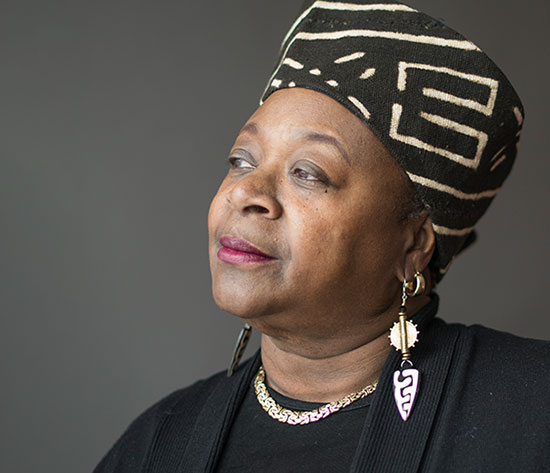
Barbara Franks | Waking Up to Injustice
“The lens through which I measure racial progress is shaped by the reality and experience of having been born Black in America.”
I came of age and received my college education during the Civil Rights era of the late 1960s and 1970s. I was painfully awakened by issues of racial inequity, lack of social justice and inclusion, and other race-based injustices. The same struggles persist today, as power and privilege are not easily shared.
From my initial consciousness of civil rights inequities until this very day, the lens through which I measure racial progress is shaped by the reality and experience of having been born Black in America.
The justice system, to which I have devoted my entire career, has consistently been used as a weapon to snuff out the lives of Black people – both literally and figuratively. Communities of color have long decried the use of excessive force by law enforcement against unarmed, nonthreatening Black people who come under police scrutiny, and by acts of hatred by white people who expect to be shielded from responsibility by inherent privilege.
The proliferation of readily available video footage has enabled would-be white allies to witness these atrocities in real time. Some are now beginning to wake up to the reality of the
(in)justice system as it relates to people of color.
Frustration and stress surrounding the current pandemic have contributed to the historic numbers of people actively demanding social change through sometimes violent protests.
I consider it my personal responsibility to contribute to this struggle until fundamental changes have been achieved or until I die, whichever comes first.
Barbara Frank’s career in the justice system spans more than 40 years in a variety of capacities, including offender outreach services, criminal/juvenile justice system analysis, and for 27 years as a prosecutor in the Dane County District Attorney’s Office. Officially retired in 2015, she serves as a special prosecutor continuing to work in the areas of restorative justice and policies that disproportionately impact people of color in the justice system.
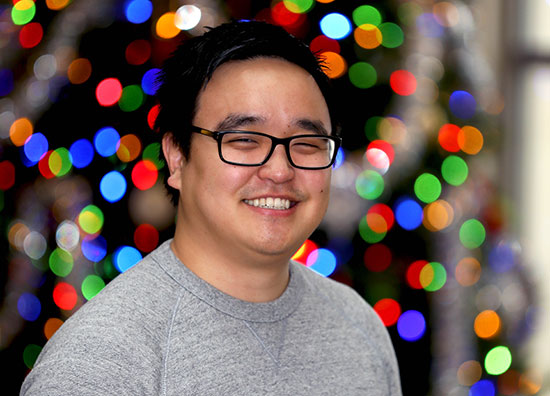
Bryant Park | Speak Up, Stand Together
“Growing up with immigrant parents, it was culturally ingrained to remain in silent resolve, as immigrants often feel as though they do not have a voice.”
I was a toddler living in the Koreatown of Los Angeles when four white LAPD officers brutally beat Rodney King. As Koreatown is located between the white suburbs and predominantly Black neighborhoods, my family and I lived in between the divide.
Growing up with immigrant parents, it was culturally ingrained to remain in silent resolve, as immigrants often feel as though they do not have a voice. All around us, however, there was outrage, as the four officers were later acquitted. Although I could not comprehend this senselessness at such a young age, I do recall the city erupting.
Current times render this memory to resurface and provoke disheartenment. Years have passed, but not much has changed. The cries were eventually drowned out over time, allowing more senseless acts to be met with the same injustice and inequality.
We can no longer allow these cries to remain submerged. The Black community is in dire need of support and allies from all communities. It is of utmost importance for everyone to speak up and stand together. We must disrupt any personal mindsets that hinder us from standing with our Black brothers and sisters. This time, it is not just one city erupting. We must all fight for change.
Bryant Park, Marquette 2014, is the employer relations and diversity initiatives coordinator for the U.W. Law School’s Office of Career and Professional Development. He is president of the Wisconsin Asian American Bar Association.
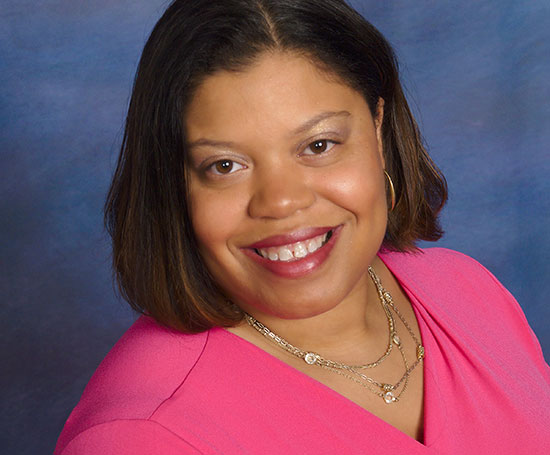
Carmen L. Ayers | Failing at Racial Equity
“Until our political and judicial systems become more diverse, equitable, and inclusive, Racine will remain the second worst place for Black Americans in the nation.”
My view of the world does not reflect equal justice. One of the major contributing factors is our nation’s failure at racial equity. Until all biases and hate around racial identities are gone, especially those found within our legal system, we are doomed to have inequities toward people of color.
When I left Wake Forest University School of Law in Winston Salem, N.C., returning to Wisconsin, I was convinced I could change the system by working within the system. My views have significantly changed. I believe we just need to create new systems.
I began my legal career as an assistant state public defender in the Kenosha Trial Office. When I joined this office, I was the only Black attorney. Additionally, I was one of only a handful of Black attorneys practicing in Kenosha. It was disturbing to me working in a legal community where primarily all of my clients were people of color and most were Black. There were no Black judges or Black assistant district attorneys in Kenosha then or now.
Until we have true criminal justice reform, we are doomed to live in a society without equal justice. I now practice in Racine County providing civil legal aid, and the landscape is the same. There has never been a Black judge in Racine County. Until our political and judicial systems become more diverse, equitable, and inclusive, Racine will remain the second worst place for Black Americans in the nation as highlighted by 24/7 Wall St.
Carmen L. Ayers, Wake Forest University 2005, is a staff attorney at Legal Action of Wisconsin in Racine, where she does community lawyering in the Uptown neighborhood. She focuses her practice on housing, consumer, and unemployment.
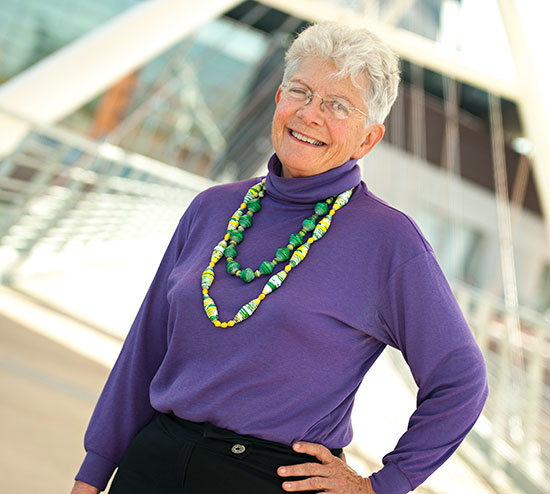
Dianne Post | White Like Me
“America was founded in protest. You cannot let it die in silence. White privilege won’t protect you from the death of a nation.”
At 16, I spent two weeks in Chicago with a church group. We 20 white and rural kids from Wisconsin went to the big city to meet and work with Black teenagers to help dissolve the color line. One night I walked to the local store. I was the only white person visible. I was called names, empty beer cans were thrown at me, the cashier refused to wait on me, take my money, or bag my purchases as other shoppers shoved me aside and trod on my feet.
After the incident, I was screaming, pounding, crying furious. It happened to me once. I could not imagine how I could survive this treatment every day, every week, every month, every year, every decade. African-Americans have suffered worse in this country for four centuries.
I am not strong enough to do it and still be kind, still salute the flag, still sing the national anthem, still enlist in the military. Before you criticize the outpouring of righteous grief and anger or pass judgment on actions of the Black community across the country, ask yourself if you could. After you watch 50 videos of a Black man or woman or child being murdered by those sworn to protect us, ask yourself if you could.
It is way past time for white America to stand up for an America that really does mean equality, freedom, and justice for all. America was founded in protest. You cannot let it die in silence. White privilege won’t protect you from the death of a nation.
Dianne Post, U.W. 1979, moved to Arizona and for 18 years represented battered women and molested children. In 1998, she embarked on an international career focusing on gender-based violence and continues to this day.
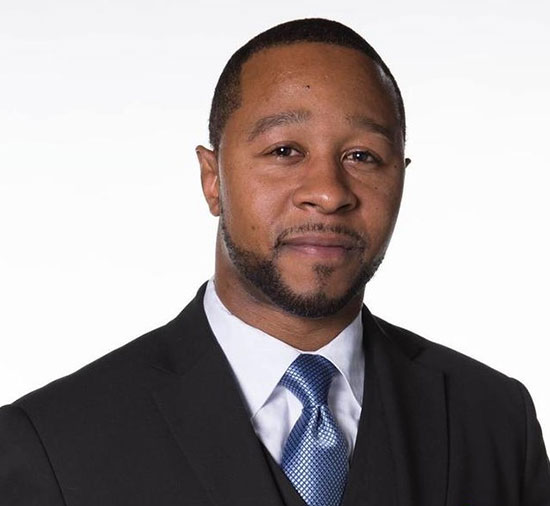
Wrongly Convicted Jarrett Adams | It Falls on Our Doorsteps
Jarrett Adams was wrongfully convicted of a crime in Wisconsin. He spent 10 years in prison before being exonerated. Now a lawyer, he calls on the profession “to do the work.”
“When I was going through this, I had the unrealistic, naive expectation that the criminal justice system would give me the same presumption of innocence as it does my counterparts, and that’s just simply not the case,” said Jarrett Adams, who was 17 when he was wrongfully convicted of a crime in Wisconsin and spent 10 years in prison.
But in 2007, he was exonerated, with the help of the Wisconsin Innocence Project. He went on to graduate from law school in 2015 and was admitted to practice in Wisconsin earlier this year. He now specializes in criminal defense and civil rights cases in New York. In a recent video interview, Adams says the criminal justice system needs foundational change.
“What we are dealing with now is the leaky faucet, for years, because of what is going on with the piping system. For years, the economically and educationally poor neighborhoods have been neglected, let’s just be honest. Now that we are here, we have to do the work and not gloss over it. We have to repair our educational system in these areas.
“We have to put an emphasis on the Department of Corrections rehabilitating people and not simply warehousing them, because what it creates is a merry-go-round of people who are picked up in impoverished areas, spending decades in prison, then released ill-prepared for society, back in those same impoverished areas.”
More diversity in the legal profession, he said, will result in more equality by pushing change litigation. “You have people who have the power to change, but they aren’t the closest to the problem. It is those who are closest to the problem who are farthest away from the resources to change the problem. That’s falling on the doorstep of attorneys.”
<iframe src="//www.youtube.com/embed/dUk5BkPfavw" width="525" height="295" frameborder="0" allowfullscreen></iframe>
To learn more about Adams’ experience, watch the interview featured in the July 15, 2020, edition of InsideTrack.
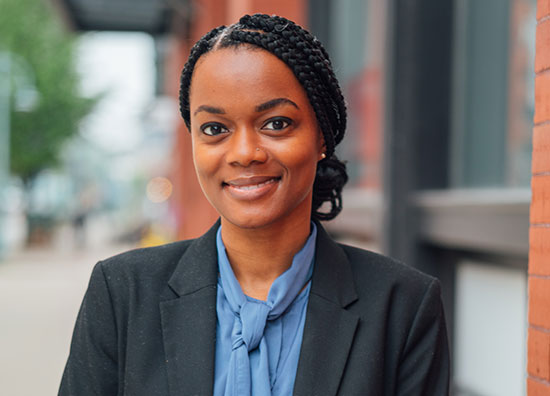
Jennifer L. Johnson | Cautiously Hopeful
“‘To be Black and conscious in America is to be in a constant state of rage.’ I feel very enraged on a pretty constant basis.”
I wasn’t around for the civil rights movement, but based on what I’ve read, what I’ve learned in school, and what I’ve been told by family members living during that time — including my own parents — this moment feels very “movement-like.”
James Baldwin famously said, “To be Black and conscious in America is to be in a constant state of rage.” I feel very enraged on a pretty constant basis. As far as I know, I am the first attorney in my family. This isn’t wholly due to a lack of interest. My grandparents (the youngest being 78 years old) weren’t afforded nearly the same opportunities as me. Both my grandfathers’ grandfathers were slaves. With that in my bloodline, I am rooted in strength, tenacity, and endurance!
With that being said, I am cautiously hopeful. The protests are leading to laws being enacted and charges being issued. And that is a promising start. #BlackLivesMatter
Jennifer L. Johnson, Robert H. McKinney School of Law 2014, is the director of diversity & inclusion and racial justice legal work at Legal Action of Wisconsin, Milwaukee. She is a member of the State Bar’s Public Interest Law Section board, the State Bar Communications Committee, and the Wisconsin Association of African-American Lawyers.
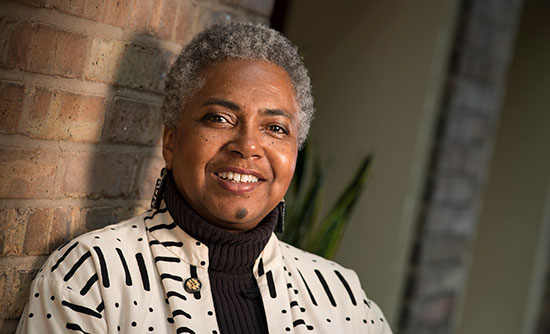
Celia Jackson | This is Our Moment
“If we are ever to make any strides, it will require everyone to exhibit the courage to be uncomfortable.”
I am a proud 1980 graduate of the Legal Education Opportunities (LEO) Program at the U.W. Law School. I am thankful that there was a favorable environment that provided access for people like me to get into school. I am also painfully aware that without such programs, there would be little to no racial or cultural diversity in the profession.
While engaged in a recent project researching the history of Black lawyers in Wisconsin, it was a hurtful reminder that the issue of race manifests itself in agonizing ways in our country’s legacy. The issues of dignity, respect, and equity continue today even though they may not be as overt. Whether actions are overt or covert, they still cause harm. What matters is finding a way to be fully engaged to eradicate the inequalities. Sitting on the sidelines and being silent is complicity.
Whites and Blacks have a very basic misunderstanding of each other. Our experiences and world views are quite different. It’s been designed that way. If we are ever to make any strides, it will require everyone to exhibit the courage to be uncomfortable. I invite the members of the Wisconsin Bar to design a curriculum that allows for authentic dialogue on the ownership of the discrimination that haunts us and to create an inclusive profession in a way that is compassionate and understanding.
This is our moment. Ownership, authenticity, and inclusivity are required. Without them, we would have simply squandered this opportunity.
Celia Jackson is a retired attorney in Milwaukee. She has worked as a Milwaukee County prosecutor, assistant dean at Marquette University Law School, private practitioner, and secretary of the Department of Regulation and Licensing in the James Doyle administration.
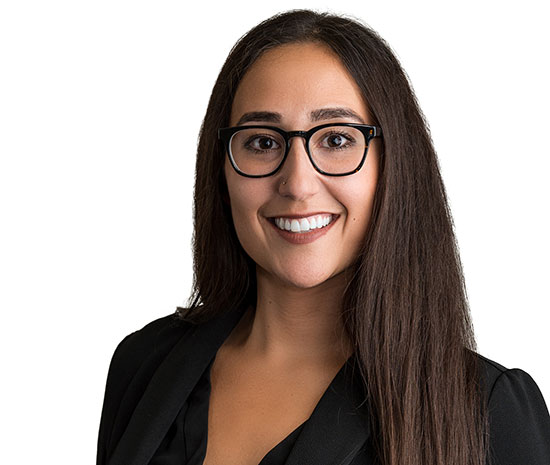
Catarina A. Colón | Use Our Privilege to Act
“Lawyers need to become aware of our own privilege as legal professionals, and then use that privilege to act with and for others in pursuit of ending oppression and creating equality. “
To say that the last several months have been challenging and painful for people of color is an understatement. The state of our country and the civil unrest we are facing have caused many diverse attorneys, including myself, to reflect on the shortcomings of the legal profession as a whole and try to find ways to foster change both within our organizations and ourselves.
According to our own Rules of Professional Conduct, attorneys are tasked with the responsibility of improving the law and the legal profession. In part, that requires us to become aware of our own privilege as legal professionals, and then use that privilege to act with and for others in pursuit of ending oppression and creating equality.
For those who do not know where to start, here are some suggestions:
- When you hear or see injustices taking place, step in;
- Continuously educate yourself on how to be an ally to your diverse colleagues and clients;
- Learn the definitions of important terms like white fragility, microaggression, cultural appropriation, and implicit bias;
- Implement a diversity clerkship program at your firm or organization;
- Mentor diverse attorneys and law students;
- Provide your diverse attorneys with meaningful work opportunities — do not simply use them for photo opportunities; and
- Dedicate pro bono hours to serve underprivileged communities.
By taking these actions, you are carrying out your sworn oath to “never reject, from any consideration personal to myself, the cause of the defenseless or oppressed,” and improving the legal profession in Wisconsin.
Catarina Colón, U.W. 2019, is an associate in Husch Blackwell’s Milwaukee office. Her practice focuses on labor and employment litigation, and her experience includes litigating claims in state and federal courts and before administrative agencies. She is a Building Bridges member of the State Bar Board of Governors, representing the Wisconsin Hispanic Lawyers Association.
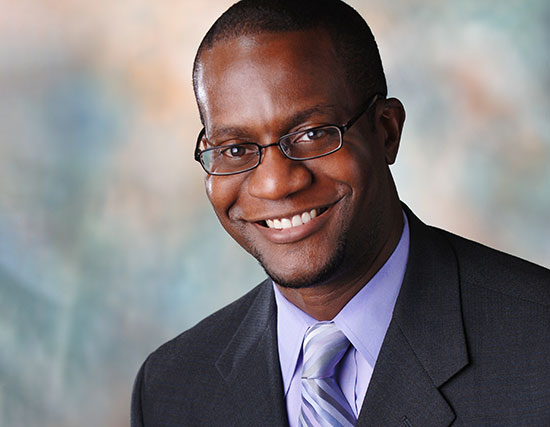
Jeffrey B. Norman | Seeing the Humanity
“I want our community to see the human side of the uniform, just as I want my officers to see our community in a positive setting rather than just a crisis or emergency.”
As I reflect on how we deal with systemic racism in America, especially how it involves law enforcement, I am frustrated but also optimistic.
As a Black commander of a busy urban district, on a daily basis I see dedicated, selfless, and positive accomplishments by my officers. Unfortunately, when law enforcement commits horrendous and inhumane acts of violence against people of color, it is very upsetting for me because those inexcusable acts prick the various discriminatory trauma I experienced growing up and living in America.
Leading while keeping those past traumatic experiences in mind, I fully understand I cannot change the world, but I can positively affect a slice of it. I actively expect my supervisors to treat their officers humanely. In turn, my officers are to treat the public humanely, for I believe hurt people will hurt others. I actively expect my officers to “see” the public they serve, and not treat them as a number or a statistic. I also support a robust community engagement program for my entire district. I want our community to see the human side of the uniform, just as I want my officers to see our community in a positive setting rather than just a crisis or emergency. Ultimately, I want to foster a better connection that we all deserve dignity, respect, and understanding.
In the end, if we all took a “what can I positively do for my slice of the world” approach, we can gain so much for our nation.
Jeffrey B. Norman, Marquette 2002, is a police commander for the Milwaukee Police Department District Three. He is also a practicing attorney focusing on family law and a law enforcement instructor for Milwaukee Area Technical College. He is a member of the Wisconsin Association of African-American Lawyers and the Marquette University Law School’s diversity committee and alumni board.
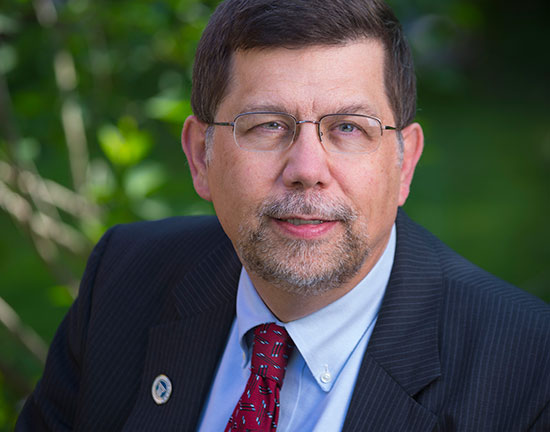
Fran Deisinger | Yet Again and Again
“Whether by intent or as the accidental but obvious result of some clever but empty ‘legal philosophy,’ lawyers’ words too often still serve as tools of racial oppression.”
Yet again an entire race of Americans must turn to public outcry to plead for “life, liberty and ... equal protection” under the law as guaranteed to them by the 14th Amendment – in 1868!
As a lifelong Milwaukeean, I have witnessed these eruptions repeatedly. In the summer of 1967. After Ernest Lacy died. After Dontre Hamilton died right outside my office building. Now after George Floyd. The racism underlying these tragedies also fuels the cumulative social and economic trauma in so much of our Black community; the hollowing out of whole neighborhoods and cities because of job losses, drug scourges, redlining, neglect, mass and disparate incarceration.
You would think that we lawyers would lead the way to change this, sworn by oath as we are to do justice. Sometimes we have. Lawyers wrote the 14th Amendment and Brown v. Board of Education, and shaped the Civil Rights and Voting Rights Acts.
But we also wrote the rank decisions of Dred Scott and Plessy. And let’s not spare our modern selves, authors of more recent briefs and laws and decisions – decisions of every kind – whose actual effect is to further disenfranchise Black Americans. Whether by intent or as the accidental but obvious result of some clever but empty “legal philosophy,” lawyers’ words too often still serve as tools of racial oppression.
It disserves our republic, and we lawyers must stop doing it. The hope of the American experiment, and its future, depend on our common recognition that Black Lives Matter.
Fran Deisinger is a retired shareholder, of counsel at Reinhart Boerner Van Deuren s.c., Milwaukee. He is a past president of the State Bar of Wisconsin and the Milwaukee Bar Association and a member of the Wisconsin Criminal Justice Coordinating Council. His views here are his own.
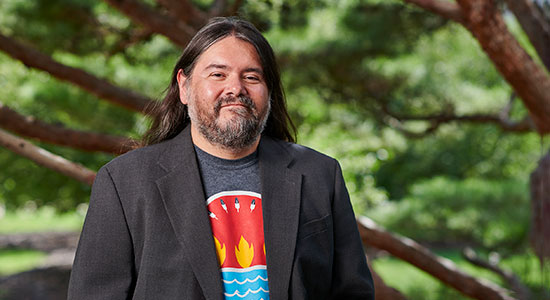
Prof. Matthew L.M. Fletcher | The Promise Not Kept
“I grew up surrounded by adults talking about federal recognition and the promise of ‘Indian money,’ compensation for lost treaty rights.”
I come from Anishinaabe communities, the Grand Traverse Band Odawa and Pokagon and Gun Lake Bodewadmi, who signed numerous treaties from 1795 to 1855 that suffered through administrative termination from the 1860s through the 1980s and 1990s. I grew up surrounded by adults talking about federal recognition and the promise of “Indian money,” compensation for lost treaty rights.
My relatives had nothing, no reservation, no tribal government, no HUD money for housing, no IHS, no BIA, but they still ended up getting removed to boarding schools and foster care with white families, going to jail, and dealing with suicide and addiction. I went to law school and chose to work with tribes to be a part of the restoration of Anishinaabe government and culture.
A friend once asked me what standards apply in tribal courts when a prosecutor moves to charge a juvenile as an adult. I was taken aback. No Anishinaabe tribal judge I know would ever agree to that. Indian children are special, considered by some to be supernatural creatures, deserving respect and deference. The word in Anishinaabemowin for child is benodjhen, which loosely translated means spirit coming forth.
As a policy matter, the last thing a tribal judge would want to do is sentence a child to a jail where they could be brutalized and converted into a hardened criminal. Tribal communities already struggle with the reintegration of our adult prisoners. It would be so much worse for our children.
Matthew L.M. Fletcher is professor of law at Michigan State University College of Law, director of the Indigenous Law and Policy Center, and editor of the leading blog on Indian law, Turtle Talk. He is a member of the Grand Traverse Band of Ottawa and Chippewa Indians.
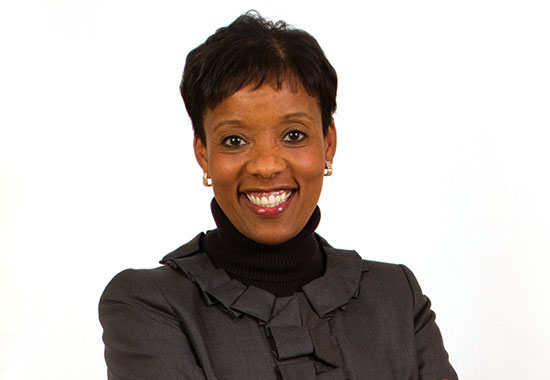
Michelle Behnke | Justified Anger, Impatience
“I hope this moment provides an opportunity to look critically at the systems that cause and sustain racial disparities.”
While this feels like an important moment in the racial, social, and legal reform movement, to be clear, this is not the first such moment, and it likely won’t be the last. The importance of this moment to me is a recognition by a broader audience of African-Americans’ justified anger and impatience.
I have been working in the area of racial equality and inclusion almost since the day I graduated from law school in 1988. I have worked from the inside, followed the rules, and used the existing systems. However, even playing by the rules, I have gotten comments like, “this is not the right time” or “we have to move slowly” or “your research question is flawed because it presumes that there is racial bias in Wisconsin.” All of these are comments made to me when I presented the information to the State Bar Board of Governors back in the 1990s when we sought to create the first Diversity Outreach Committee.
The anger that people see now is from years of frustration that no matter the strategy or methodology, even when you play by the rules, it is seen as “not the right way.” What that really says to me, and Blacks more broadly, is that “we don’t want change.”
I hope this moment provides an opportunity to look critically at the systems that cause and sustain racial disparities and rob Blacks of opportunities and keep them focused on just trying to stay alive for one more day.
Michelle Behnke, U.W. 1988, is a Madison solo practitioner, practicing business and real estate law. She served as president of the State Bar of Wisconsin 2004-05.
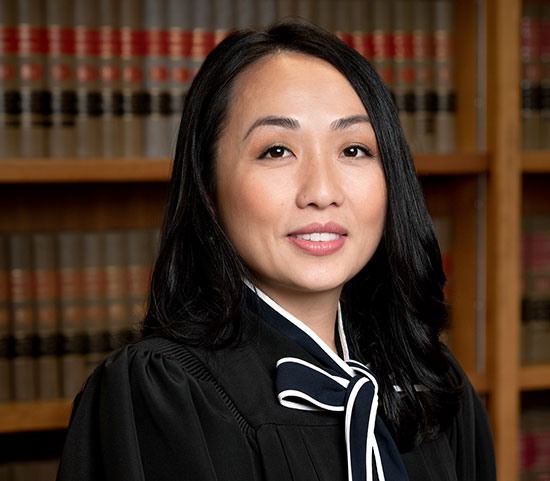
Judge Kashoua Kristy Yang | Pivotal Moment in History
“This is a moment for me, for all of us, to demonstrate humility and to extend the graciousness and understanding others have shown us.”
The most transformative moments can be some of the scariest moments. Dr. Martin Luther King Jr. said it best when he said, “In the end, we will remember not the words of our enemies, but the silence of our friends.”
While we may fear the unknown or fear what we believe to be the consequences of our actions, inevitably our interbeing means we are interconnected. To that end, it is important to recognize and appreciate how we arrived at this point in history.
Across our nation from the boardroom to the courthouse, there are meaningful discussions recognizing race, inequity, and the reforms needed. This moment in our history is pivotal, especially for someone like me who has travelled from the dirt roads of a refugee camp to the footsteps of the Milwaukee County Courthouse.
I am a former refugee and spent the first six years of my life in a refugee camp in Thailand. When my family and I immigrated to the United States, my parents left behind the only way of life they knew. This was a transformative point in their lives, in my life.
We worked hard to become part of America and for it to become part of us. We worked to fulfill our dreams. Undeniably, we thrived because of the actions and words of others, who did not fear us because of the way we looked or our inability to communicate in English.
This moment in American racial, social, and legal justice reform is a moment for me, for all of us, to demonstrate humility and to extend the graciousness and understanding others have shown us.
Judge Kashoua Kristy Yang has served as a Milwaukee County Circuit Court judge since 2017. She is the first Asian American woman and person of Hmong ethnicity elected, not appointed, to the bench.
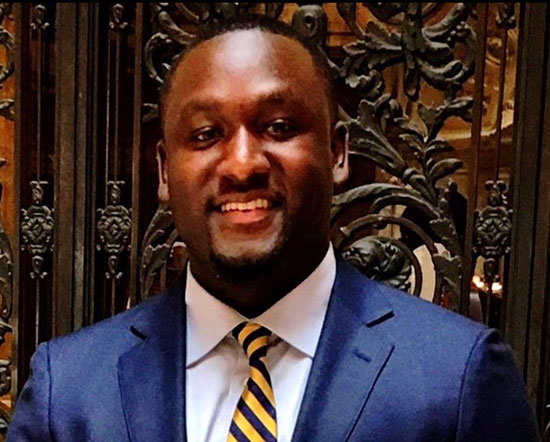
Larry A. Whitley | A Place to Start
“Become friends with Black people. Consistently surround yourself with Black people in and out of the office.”
During my freshman year of college, my roommate and I were hanging out in our dorm room when he felt compelled to get something off his chest. He told me that he cried when he found out he would be rooming with a Black person. He did not know anything about me, yet because of the color of my skin, he immediately perceived me as a threat.
Over the course of the semester, he would come to realize that I, like him, was just a kid pursuing a dream. Of all the stories that I could share regarding my experience as a Black man in America, I mention this one because it offers insight into something that we can fix today. It will require no votes and will not be an administrative burden. Are you ready? Become friends with Black people. Be intentional about your children having Black friends. Invite your Black friends to your weddings. Consistently surround yourself with Black people in and out of the office. Offer more than diversity mixers to Black law students.
I recognize that I have not cited a specific statute that needs to be repealed or a case that needs to be overturned. There are certainly laws that need our attention (google Kalief Browder and bail reform), and the system has undoubtedly and disproportionally negatively impacted Black people (read The Color of Law by Richard Rothstein). Being friends will not end systemic racism, but it’s a good place to start.
Larry A. Whitley, Marquette 2016, is an attorney at The Northwestern Mutual Life Insurance Company, Milwaukee. He represents the company and its subsidiaries in all aspects of its real estate investment activities, including permanent and construction financing transactions, acquisition and disposition of real estate assets, asset management, and leasing transactions.
Learn More
wisbar.org/racialequity
Learn what the State Bar is doing – and how you can help – to combat racial injustice and disparities, advance equal justice, and promote diversity and inclusion.
